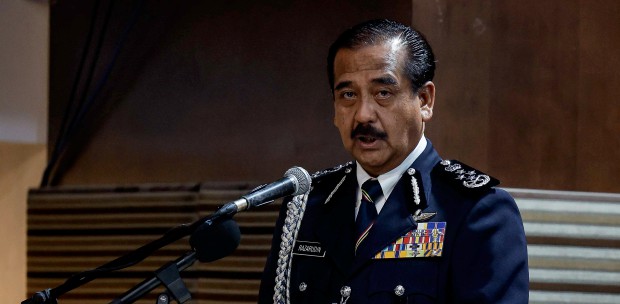Recently I have been thinking about the role Malaysia can have in eliminating the capital punishment across South East Asia.
Talking with experts I feel that there is a broad consensus that the difficult path taken by the country to get rid of mandatory capital sentencing and uphold a general moratorium against it, can offer an important lesson also for the neighborhood.
There is still a long way ahead for Malaysia to formally and unequivocally abolish the death sentence but what is happening here is encouraging and offers hope.
It will be up to the new government to push forward on this path and probably Malaysia has one of the most progressive PMs ever in Datuk Seri Anwar Ibrahim and probably he is the one who is better equipped to tackle the issue also from the perspective of spending political capital on it.
Certainly, it is not a topic that leaders in the region are eager or enthusiastic to talk about but rather the contrary.
Still for example there is scope to engage President Jokowi of Indonesia because the new penal code that was approved in Jakarta, a legislation that will take three more years to be enforced, offer glimmers of hope in terms of limiting the dispensation of capital punishment.
Yet, even if there will be a chance of a 10 years' probation period after which a justice can commute a death penalty in a life imprisonment, there is still so much to be done in Indonesia to secure the lives of many prisoners awaiting to know their fate.
The three years before the new criminal code will be legally put in place can become years where more blood will be shed and perhaps this is preventable if President Jokowi is nudged towards rethinking his standing, pretty vague actually, towards capital sentencing.
It is what Anwar could do through discreet conversation with his peer and also with other leaders of the region.
While no one can expect a U-turn in the Merdeka palace, the official residence of the Indonesia President, the seeds of change in mindset towards capital punishment can slowly take root.
Still there is so much that Anwar can also do at home. I am not just talking about formal actions in the legislative process towards a full abolition of the death penalty and other efforts to elevate human rights in the country.
I am talking about actions in the field of awareness making and attitudes towards sensitive issues like death penalty.
While there is certainly a solid number of people supporting capital sentencing, I believe it is important to educate the youths towards a stronger human rights culture.
In a recent e-discussion with an university officer where I was proposing some topics for trainings and capacity building, I dared to include also the issue of human rights and a discussion on the efforts being undertaken by Malaysia to reduce the use of the capital punishment.
I found a total rejection, a wall about tackling such issues almost in a way that the other ideas I was proposing were disregarded because I had put a discussion on the death penalty on the top of the list of possible trainings I could have delivered.
I guess this happen because there is too much hesitation to talk about death penalty and human rights, also because they are not considered worthy the discussion: they are too sensitive and too "political".
Is it also because the system and the environment surrounding it awards a premium on a too rigid definition of skills creation?
Universities feel the pressure to offer their students skills and tools that, after all, must be sold in the job marketing and hardly a deeper understanding on the death penalty can help an engineering student to land a job offer.
While such concerns are understandable to some extents, I strongly believe that universities are not just "transferers" of technical knowledge.
They are the place where students' mindsets are shaped and opened up to, yes, new expertise but also to new form of thinking.
That's why universities have a big responsibilities towards their students and it is a responsibility that also centres on the duty to pick tough, sensitive issues and enable their students to reflect over them.
Getting completely rid of capital punishment in Malaysia and in the region won't require just an effort in terms of legislation.
It will also depend on shaping different attitudes among the new generation and youths should be allowed to better understand such difficult issue.
Universities cannot shy away from this difficult and demanding task but probably we need real progressive leadership at the top of the political spectrum for them and the civil society in general to take some bold steps in this direction.
This is one more task for Anwar not only at home but also in the region.
The author writes on civic engagement, youth development, the SDGs, human rights and regional integration in the context of Asia Pacific
The views expressed in this article are the author's own and do not necessarily reflect those of the New Straits Times`






